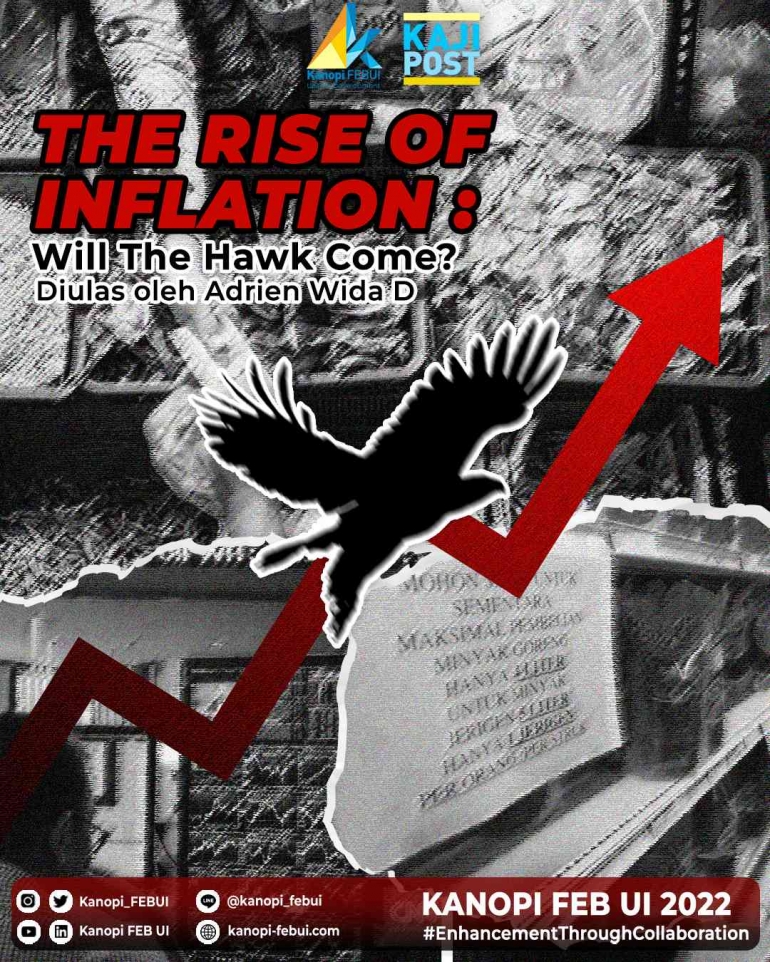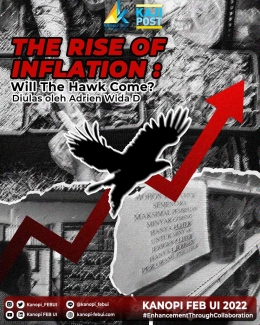Global trends have a greater impact on energy costs than on other products and services. Rising energy costs have been the most significant driver ofto Asia's inflation surge, accounting to a third of the overall increase recently, according to Goldman Sachs analysts.
In Indonesia, inflation is also not as rapid as countries in the west as in the beginning of the reopening of the economy, demand was weak, causing low and steady inflation. Government subsidies, including fuel, gas, and electricity subsidies which accounts for Rp. 502 trillion, have also dampened the effect of rising inflation.
Will the Hawk Come?
The main reason for the current inflationary phase in Indonesia is cost-push, which means that it is driven by rises in production costs (supply chain bottlenecks, high energy prices, and many more). Other geopolitical factors, such as Russia's invasion of Ukraine, have also contributed to price increases.
However, both transportation costs and delivery times have decreased significantly in recent years. Higher inflation for food and energy prices will likely slow the fall. Health care and housing costs typically account for a sizable portion of consumer bills. As a result, the economy will grow faster because the housing sector demands numerous inputs that may be supplied by the home market (Nazara, 2022).
Following periods of increased inflation, the economy can recover. Inflation can, however, precede a recession, as was the case with Indonesia's first inflation in the 1960s.
In Indonesia at the time, inflation occurred as a result of Soekarno's unrealistic and ambitious lighthouse projects and inflationary policies. This was followed by a recession, which resulted in Indonesia's first recession.
However, based on the data, it appears that Indonesia will not enter a recession, despite the fact that some countries have. GDP is 5.01% positive, and the debt-to-GDP ratio is 42%. The budget deficit remains under control at less than 4%, the trade balance has been in surplus this year, and foreign exchange reserves total $135 billion.
Strong employment growth data is also creating economic "momentum." According to the figures, job creation is continuing, household finances are robust, consumers are spending, and businesses are expanding.
What triggered the inflation in the first place can have an impact on what happens to the economy after a period of high inflation.
The present economic cycle will be influenced by the number of people working since it will affect the amount of goods produced, such as electronics or autos. Prices will fall as suppliers increase their production levels (Hogan, 2022).
Meanwhile, demand for commodities has already begun to level off, with people deferring purchases of discretionary items as inflation rises (Chang, 2022).







